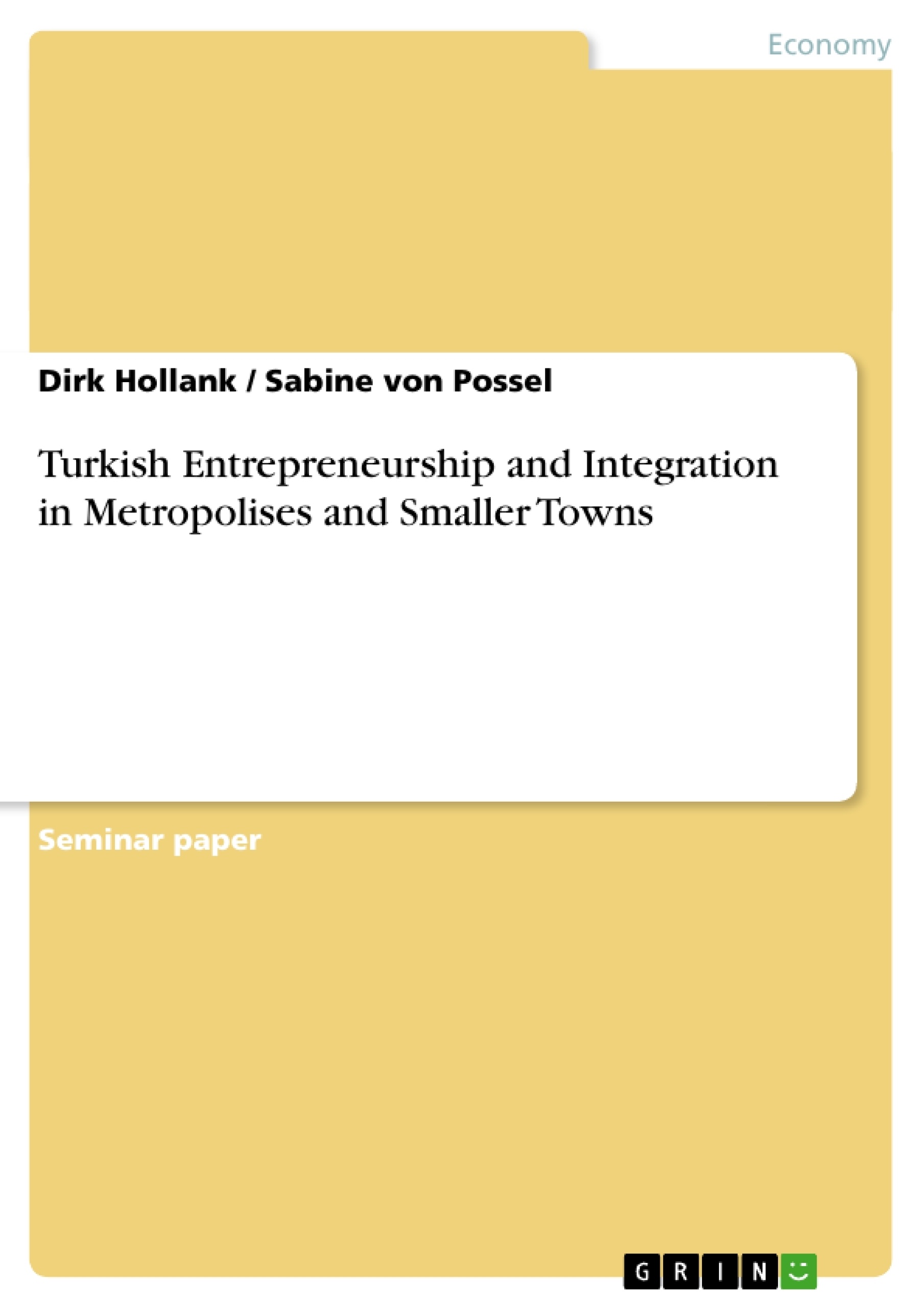Ethnic entrepreneurship has experienced significant development during the last decade. Today 8.7% of all immigrants in Germany run their own businesses (Plahuta, 2004, p.1). In the year 2003, 286.000 self-employed migrants were counted in Germany. Out of this number the Turks represent the biggest group with 60.000 entrepreneurships (Leicht, 2005, p.6). Of 10.000 Turkish workers 197 launched their own business as opposed to 122 business foundations among the German population (ibid, p.7).
Even though the Turks outnumber the German business foundations, they also experience a higher rate in closedowns (ibid). In some German cities, four out of five Turkish business foundations fail, according to Dr. René Leicht (2005, ‘Die Rheinpfalz’). He opens the thesis that this high number is at least partly due to the fact that Turks rather prefer to open their businesses in branches and areas dominated by their own people. As a result of this concentration, Turkish businesses solely depend on the purchasing power of their fellow immigrants. Besides, they unnecessarily create a highly competitive market.
Since the preference to live and work in an area inhabited primarily by one’s own nationality indicates a rather limited integration, we are going to examine whether integration in general is a driver for financial business success.
Inhaltsverzeichnis (Table of Contents)
- 1. Introduction
- 2. History of Turkish Immigrants in Germany
- 3. Methodology
- 3.1. Procedure of Data Collection
- 3.1.1. Our Samples
- 3.1.2. Our Research Method
- 3.2. Experiences on Making Interviews
- 3.1. Procedure of Data Collection
- 4. The Analysis of the Interdependencies between Integration and Business Success
- 4.1. Definition and Scope of Integration and its Realization
- 4.1.1. Cultural integration
- 4.1.2. Structural integration
- 4.1.3. Interactive integration
- 4.1.4. Identificative integration
- 4.2. Definition and scope of success and its achievement
- 4.1. Definition and Scope of Integration and its Realization
Zielsetzung und Themenschwerpunkte (Objectives and Key Themes)
This research project investigates the correlation between the degree of integration of Turkish kebab shop owners into German society and their economic success. It compares entrepreneurs in two distinct settings: a predominantly Turkish neighborhood in Hamburg and a rural area in Dithmarschen. The study aims to analyze whether integration is a significant factor influencing the financial prosperity of these businesses.
- The relationship between integration and business success for Turkish kebab shop owners.
- Comparative analysis of integration levels and business outcomes in urban and rural settings.
- Examination of different dimensions of integration (cultural, structural, interactive, identificative).
- The impact of customer base ethnicity on business success.
- Methodological considerations in researching immigrant entrepreneurs.
Zusammenfassung der Kapitel (Chapter Summaries)
Chapter 1: Introduction provides background information on Turkish entrepreneurship in Germany and introduces the research question: Does integration affect the economic success of Turkish kebab shops?
Chapter 2: History of Turkish Immigrants in Germany gives a historical overview of Turkish migration to Germany, highlighting the context of guest worker programs and the evolution of integration challenges.
Chapter 3: Methodology details the research design, including the selection of samples (Hamburg-Veddel and Dithmarschen), the rationale for choosing personal structured interviews as the primary data collection method, and considerations regarding the questionnaire design.
Chapter 4: The Analysis of the Interdependencies between Integration and Business Success outlines the definitions of integration and business success used in the study. It will delve into the four dimensions of integration and their potential relationship with economic outcomes. This chapter will present the analysis of the collected data, excluding any major conclusions or findings.
Schlüsselwörter (Keywords)
Turkish entrepreneurship, integration, economic success, kebab shops, Germany, Hamburg, Dithmarschen, cultural integration, structural integration, interactive integration, identificative integration, qualitative research, interviews, immigrant entrepreneurship.
- Quote paper
- Dirk Hollank (Author), Sabine von Possel (Author), 2007, Turkish Entrepreneurship and Integration in Metropolises and Smaller Towns, Munich, GRIN Verlag, https://www.grin.com/document/120288



